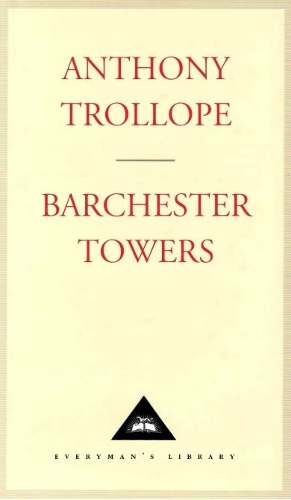
Barchester Towers
(Hardback)
Available Formats
Paperback
Published: 1st July 2015
Hardback
Published: 24th April 1992
Paperback
Published: 4th December 2003
Paperback
Published: 1st November 2005
Publishing Details
Barchester Towers
By (Author) Anthony Trollope
Everyman
Everyman's Library
24th April 1992
19th March 1992
United Kingdom
Classifications
Physical Properties
Hardback
616
Width 134mm, Height 210mm, Spine 33mm
645g
Description
Anthony Trollope was well aware that the seemingly parochial power struggles that determine the action of Barchester Towers struggles whose comic possibilities he exploits to hilarious effect actually went to the heart of mid-Victorian English society, and had, in other times and other guises, led to civil war and constitutional upheaval.
That awareness heightens the comedy and intensifies the drama in this magnificent novel and it transforms the story of a fight for ascendency among the clergy and dependants of a great English cathedral into something fundamental and universal. Barchester Towers is the second of Trollope's six Barchester Novels, all published by Everyman's Library.
Author Bio
Anthony Trollope was born on 24 April 1815 and attended both Harrow and Winchester schools. His family were poor and eventually were forced to move to Belgium, where his father died. His mother, Frances Trollope, supported the family through writing. Trollope began a life-long career in the civil service with a position as a clerk in the General Post Office in London he is also credited with later introducing the pillar box. He published his first novel, The Macdermots of Ballycloran in 1847, but his fourth novel, The Warden (1855) began the series of 'Barsetshire' novels for which he was to become best known. This series of five novels featuring interconnecting characters spanned twenty years of Trollope's career as a novelist, as did the 'Palliser' series. He wrong over 47 novels in total, as well as short stories, biographies, travel books and his own autobiography, which was published posthumously in 1883. Trollope resigned from the Post Office in 1867 and stood for Parliament as a Liberal, though he was not elected. He died on 6 December 1882.
